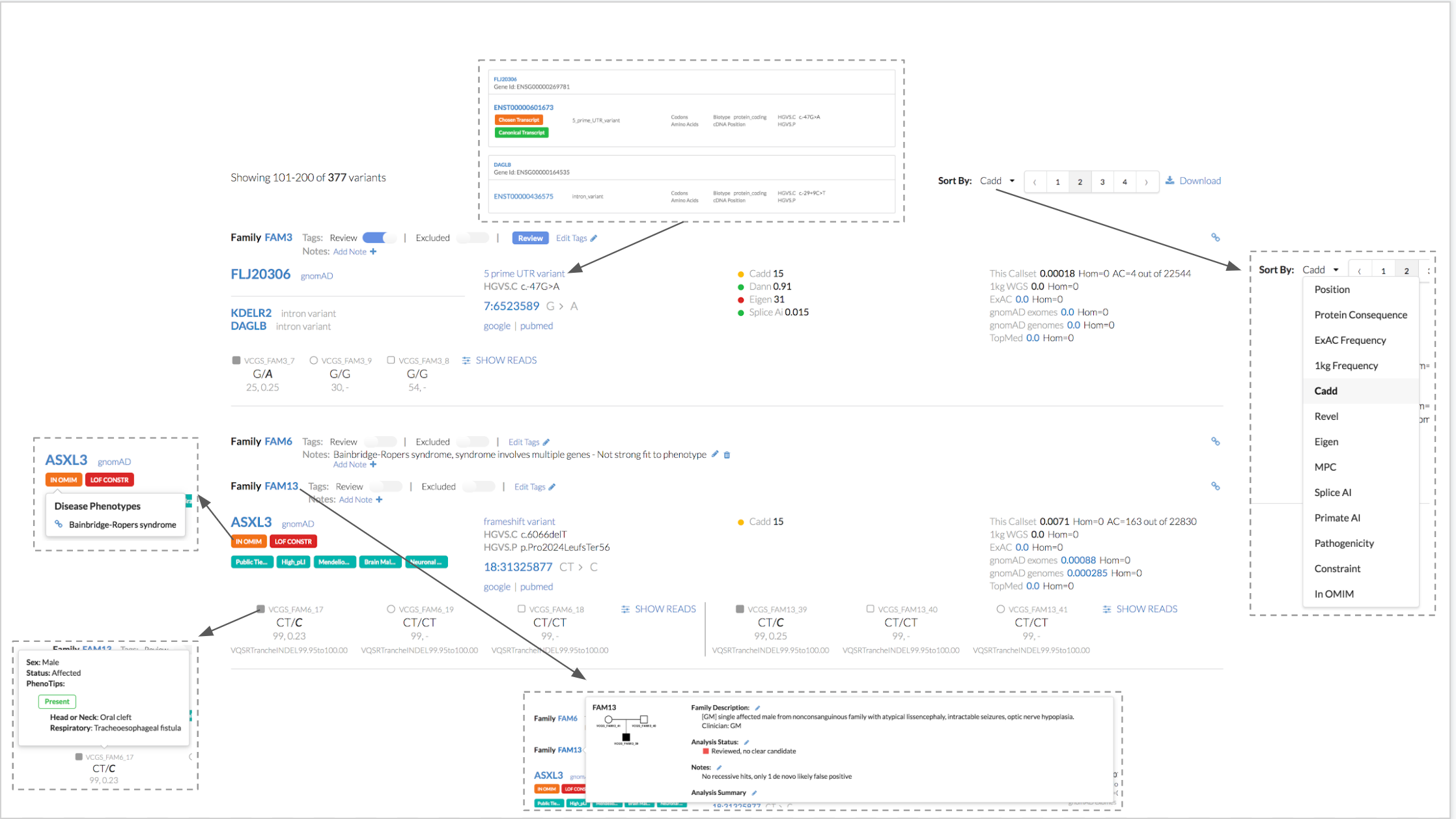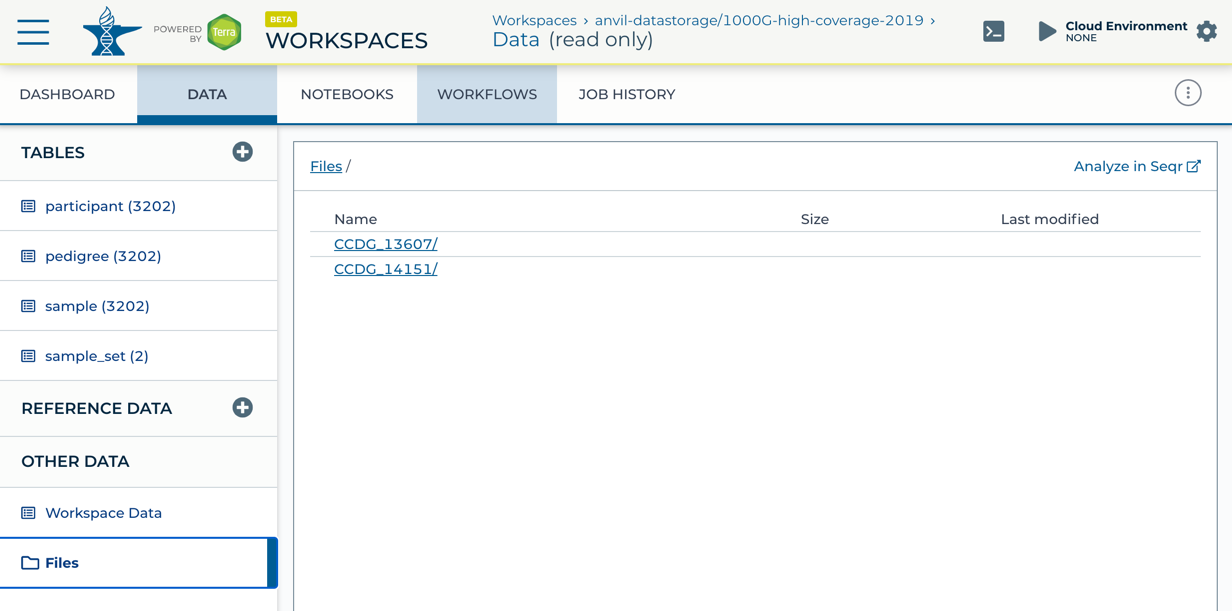Announcing Seqr Availability in NHGRI's AnVIL
The Broad Institute's Seqr is being launched today in production within AnVIL to provide a platform for genomic data analysis for rare diseases. Broad's Seqr is an intuitive browser-based system for analyzing rare disease exome and genome data on a family basis.

Seqr is an open-source tool supported by the Translational Genomics Group at the Broad Institute that runs on Google Kubernetes Engine (GKE) and data is loaded using Google Dataproc Spark clusters.
The production instance uses Postgres, which is a SQL database, to store project metadata and user-generated content (e.g., variant notes) and Elasticsearch to store variant callsets.
With the onset of key NHGRI datasets being ingested to AnVIL such as Center for Mendelian Genomics (CMG), Clinical Sequencing Evidence-Generating Research (CSER), and Transamerican Autoimmune Research Network (TARN), the availability of Seqr will enable researchers to analyze and annotate their data with Seqr in the AnVIL platform and collaborate with other investigators as they choose.
Using Seqr in AnVIL
Researchers will need to bring their joint call files to the AnVIL to make use of Seqr. If a joint call file is needed, researchers can use GATK tooling, also available within AnVIL.
To launch Seqr on a Terra workspace, navigate to the workspaces' "Data" tab, select the "Files" subtab, and select "Analyze in Seqr" in the top right of the page.
